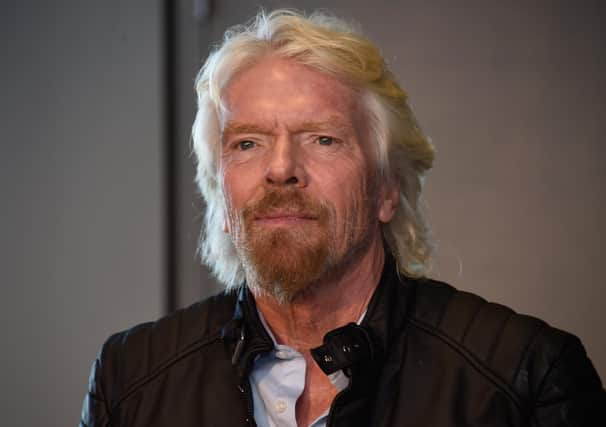Small actions offer key to protecting reputation through a crisis - comment


The same goes for reputation, and never more so than when organisations are tested and found wanting, in the teeth of a crisis. Many businesses have learned this to their cost since the coronavirus pandemic took hold in March.
Reputational risk is not a newly conjured challenge for business. It has existed for as long as choices have been open to customers about which brands they purchase; to employees over who they opt to work for; and so on, through investors, regulators, lenders and all other “stakeholders” whose collective confidence, or lack thereof, will determine whether an organisation succeeds or fails.
Advertisement
Hide AdAdvertisement
Hide AdWhen trust in an organisation is lost, reputational recovery can take years. Sometimes, damage can be irrevocable. This reality was eventually prioritised by boardrooms after reputational risk became turbo-charged in the age of social media. Reputation management has since become increasingly intertwined with the corporate response to major external risks such as the climate crisis.
This heightened appreciation of the importance (and fragility) of reputation has led to major growth of an already-enormous industry dedicated to its management. With “in-house” communications functions enjoying C-suite influence like never before, and support to be found from an ever-growing array of PR firms, why do organisations continue to trip up?
Reputational damage tends to be sustained when an organisation finds itself in a crisis. Such crises may be borne of a company’s own making – where operational difficulties are experienced, poor decisions are taken, or when a business wilfully acts in a way deemed to be unacceptable by those it needs to keep “on side”.
Equally, organisations can find themselves drawn in to external crises, which provide the lens through which their own corporate behaviour is viewed and judged.
Division
In the early days and weeks of the Covid-19 crisis, firms who made headlines could be easily sorted into two buckets – those put on a pedestal for supporting the “war effort,” and those placed in the stocks for undermining it.
Businesses all found themselves in the same storm, but certainly not the same boat. While advanced manufacturing and motorsports brands were lauded for their efforts to rapidly innovate new ventilators, so too organisations perceived to be treating staff poorly, or not pulling their weight as part of the national effort, were named and shamed.
It is hard to imagine that any organisation would have wanted to find itself attracting opprobrium at a time of national crisis. Yet many did. Many of the reputational issues firms have faced in recent weeks have seemingly stemmed not from high-level corporate strategy, but from decisions that might be categorised as “operational”, or even “low level”.
Recent crises, Covid-19 included, have shown an organisation’s “day-to-day” actions shape reputation far more than how it chooses to project itself through, say, carefully sculpted promotional materials and choreographed executive media appearances.
Advertisement
Hide AdAdvertisement
Hide AdReputation is of course forged by boardroom decisions, but only in part. It also stems from everyday actions and decisions. It cannot and should not be compartmentalised as a project, a workstream, or even the responsibility of a single individual or team.
Coronavirus will likely continue to shape our lives for years, and firms with a public profile will continue to face intense scrutiny. Communications functions can add value at this time by getting closer to the operational end of their organisations, so as to arrest and alter seemingly innocuous operational decisions before damage is caused.
Beyond this, where organisations can do well, as has always been the case, will be to behave and communicate in a manner that is realistic, practical, helpful and understanding of the pressures that people are facing at this time.
Andrew Henderson, director of public policy, Pinsent Masons
A message from the Editor:
Thank you for reading this story on our website. While I have your attention, I also have an important request to make of you.With the coronavirus lockdown having a major impact on many of our advertisers - and consequently the revenue we receive - we are more reliant than ever on you taking out a digital subscription.Subscribe to scotsman.com and enjoy unlimited access to Scottish news and information online and on our app. With a digital subscription, you can read more than five articles, see fewer ads, enjoy faster load times, and get access to exclusive newsletters and content. Visit www.scotsman.com/subscriptions now to sign up.
Our journalism costs money and we rely on advertising, print and digital revenues to help to support them. By supporting us, we are able to support you in providing trusted, fact-checked content for this website.
Joy Yates
Editorial Director
Comments
Want to join the conversation? Please or to comment on this article.